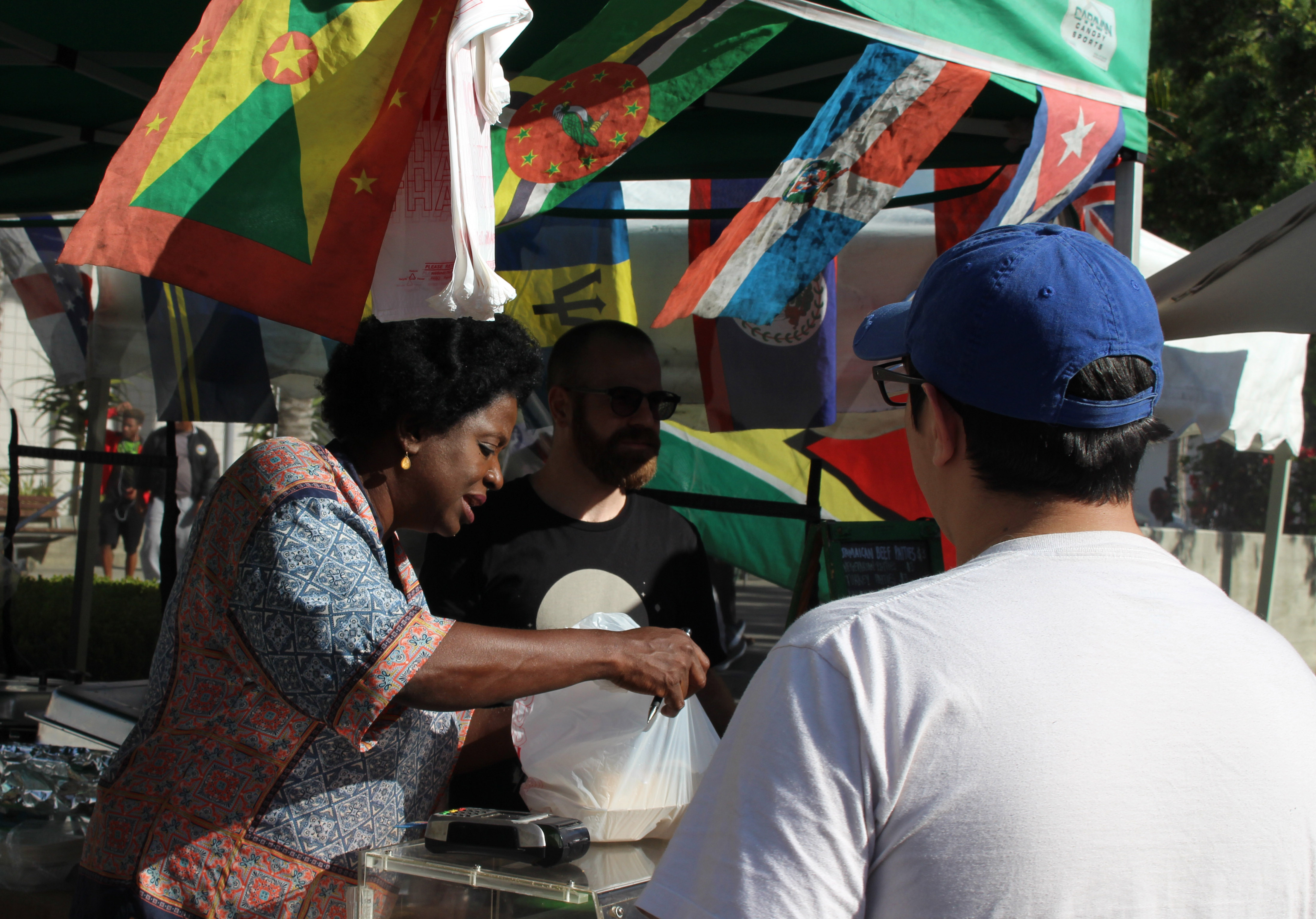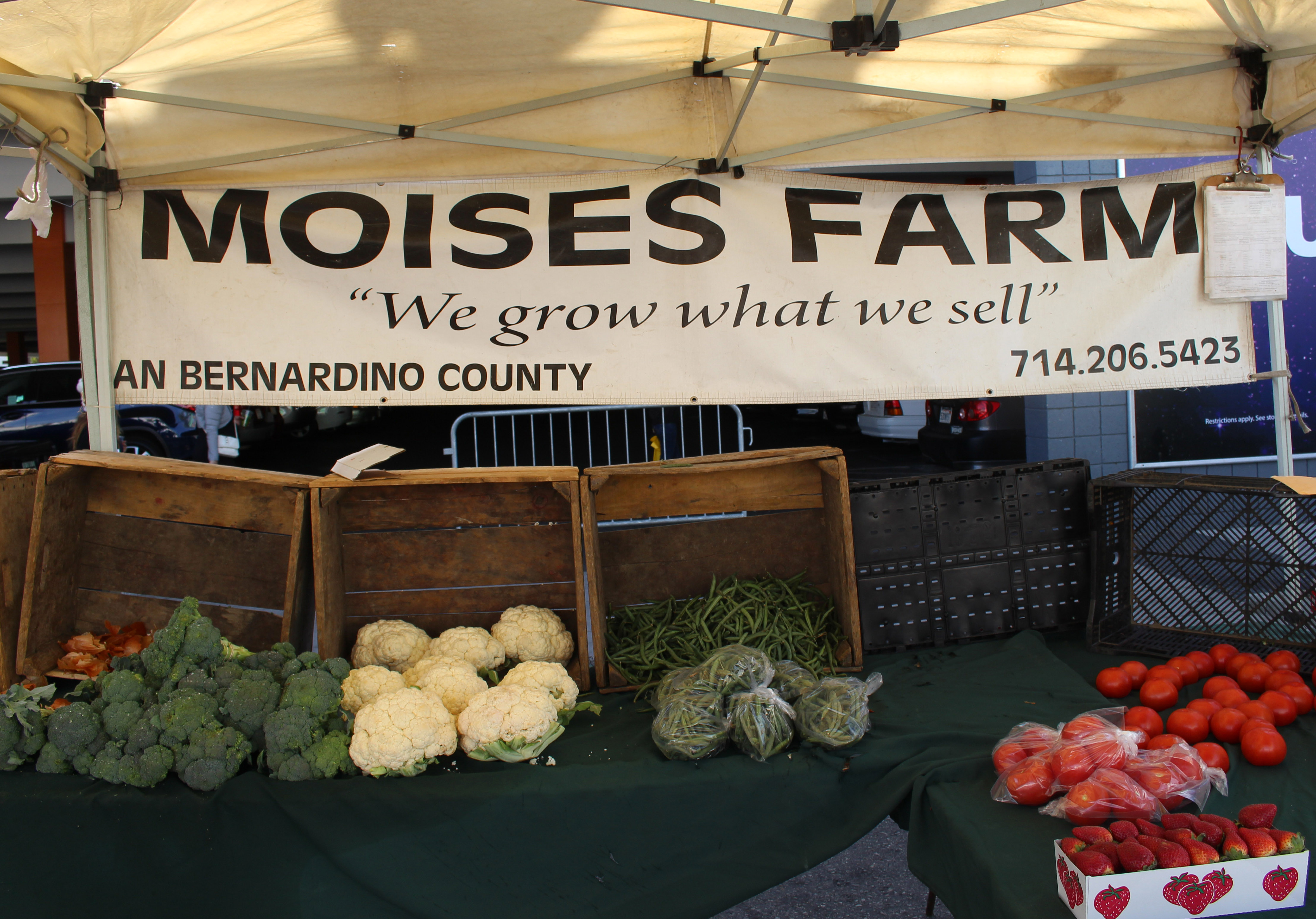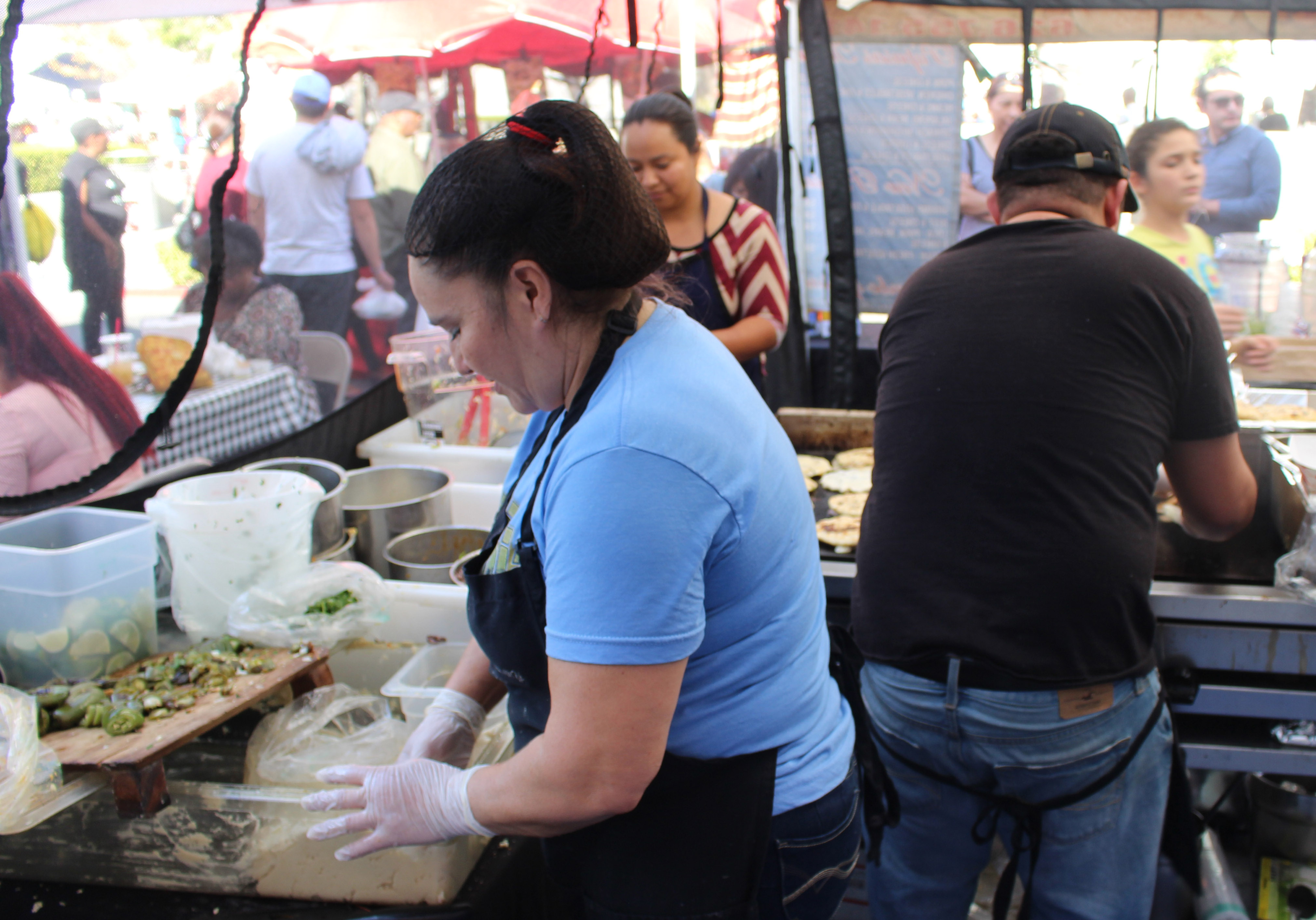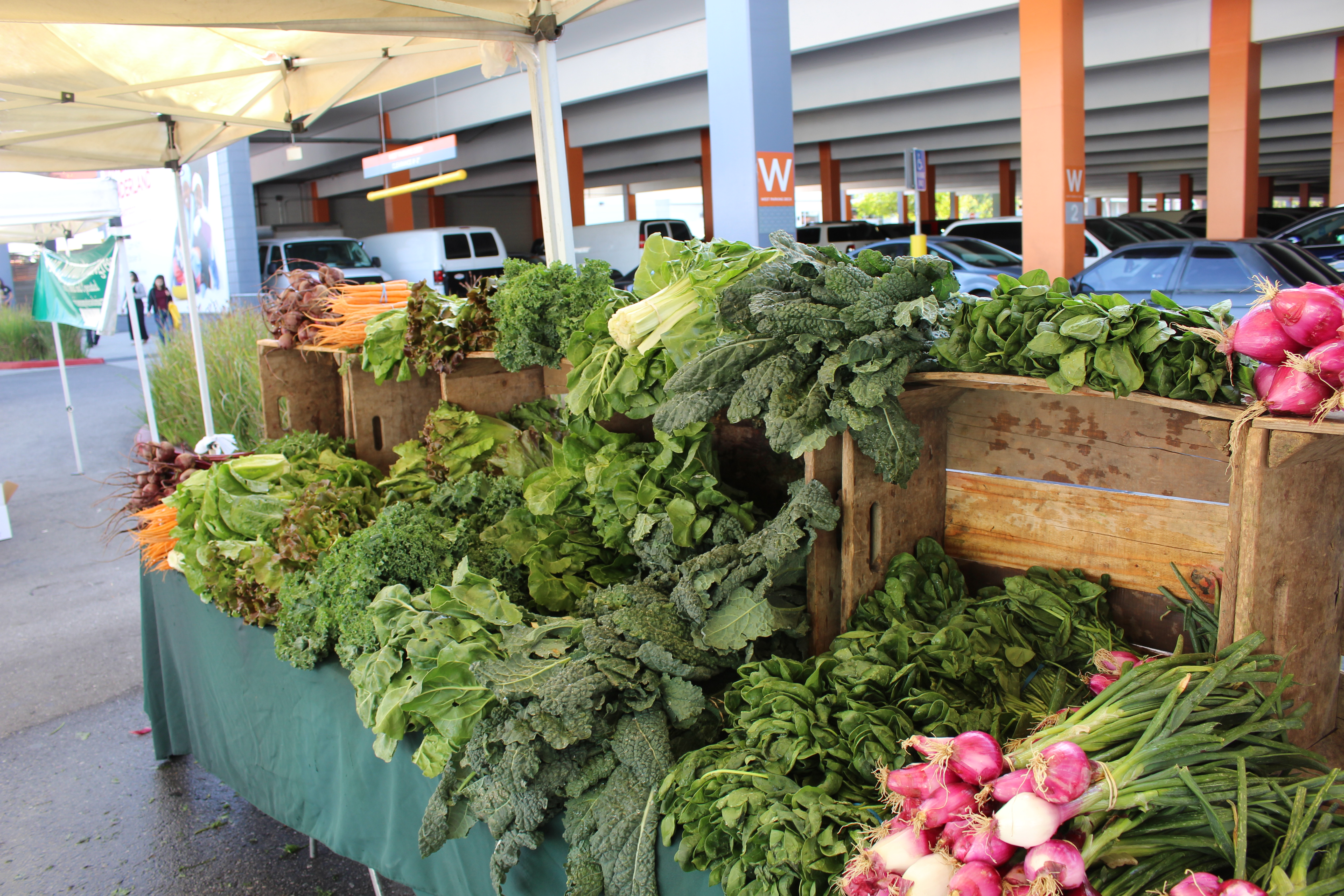
Balderama
Local farmers provide naturally sourced and fresh seasonal fruits.
In a city known for its love of healthy eating, Leimert Park struggles with the urgent crisis of a food desert.
By JULIA POE

Local farmers provide naturally sourced and fresh seasonal fruits.

A local restaurant provides classic Caribbean pastries, entrees and drinks.

Local farmers provide seasonal vegetables and fresh recipes.

A wide selection of dried fruits and nuts, along with healthy candies.

A local food truck provides pupusas and aguas frescas.

Food deserts are an economic anamoly — the rare occurence of underresourced neighborhoods that lack access to basic nutritional necessities, such as fruits and vegetables. Leimert Park is one of these neighborhoods.
Every Saturday morning, the parking lot of the Cinemark on Martin Luther King Jr. Boulevard transforms into a bustling market. The vendors are all local, and they sell foods that focus on nutrition — fruits and vegetables, juices and smoothies, freshly baked bread.
Since it first started, the market has become a center for healthy food and culture in the neighborhood. Children get their faces painted while their parents shop for everything from pottery to face cream to homemade jewelry.
The farmers market isn’t only popular because of its produce. The low cost of renting a tent space allows the vendors to keep their prices low, which draws in crowds of locals. Every week, the communities of Crenshaw and Leimert Park come together to host this food market to attempt to fight a nutritional phenomenon that faces both neighborhoods — a food desert.
“It’s a difficult issue, and it’s one that’s not talked about nearly enough,” said Tony Truscita, the assistant manager of the Crenshaw Farmer’s Market. “Most people know, on a certain level, that people with lower incomes are less healthy. But I don’t think they realize that it comes from this lack of access. If there’s physically no way to get to healthy foods, what are you going to do?”
A food desert can seem filled with things to eat. For instance, the streets surrounding the Leimert Park Plaza are lined with affordable restaurants — Dr. Q Barbecue, Happy’s Pizza, El Pollo Loco — where locals flock every day for lunch and dinner.
Yet most of these restaurants serve fast food or Mexican and soul dishes, which are typically high in fat, sodium and carbs while lacking greens, protein and other nutrients. And eating these types of food on a regular basis, the CDC says, makes one much more susceptible to gaining weight and suffering a long list of chronic diseases, including heart disease and diabetes.
“Food is the most basic necessity for living a healthy lifestyle,” Truscita said. “If you don’t have access to good nutrition, how are you supposed to live your best life?”
This is true throughout Leimert Park. While food is easy enough to find throughout the neighborhood, most of it lacks nutrition. The whole neighborhood is furnished with only one grocery store, an Albertson’s in the Baldwin Hills shopping mall that also services Crenshaw. Mom and pop corner stores are sprinkled throughout the rest of Leimert Park, but these stores mainly sell non perishables and basic staples like bread and cheese. Fresh fruits and vegetables, along with lean meats such as chicken, are much less accessible.
The main challenge facing Leimert Park locals is the ability to find affordable, healthy eating options without traveling to other neighborhoods. And while studies have found that surrounding neighborhoods are “buffer zones” — where groceries and healthy eating options are more abundant — Leimert Park remains one of the harshest food deserts in South Central Los Angeles.
“During the week, you have to take the bus or get a ride just to go get groceries to make something basic,” said Mary Alesco, a local of Leimert Park who shops at the market every Saturday. “A lot of people grow up making food that doesn’t include, you know, fruits or vegetables or anything healthy in it, so then they cook the same thing for their kids, and it keeps going on and on.”
Sustainable Economic Enterprises of Los Angeles (SEE-LA) focuses on providing healthy grocery options to the many neighborhoods that exist in food deserts throughout the city. The organization achieves this by connecting local farmers with neighborhoods to create an option that is both affordable and sustainable. To achieve this goal of affordable access, each vendor is also able to accept EBT and vouchers from the Special Supplemental Nutrition Program for Women, Infants, and Children (WIC).
The WIC program is another vital part of keeping women and children healthy in neighborhoods such as Leimert Park. Founded 40 years ago by the FDA, the WIC program provides vouchers to women who are pregnant or nursing, infants and young children which can be exchanged for qualified foods.
The program aims to provide the nutrition that is necessary from pregnancy into childhood. But for many who live in food deserts, the WIC program is useless if they can’t get to a vendor that allows them to use the vouchers. The farmer’s market offers an opportunity for women and children in Leimert Park to utilize the program to its fullest.
However, the challenge of a food desert can’t be solved solely by providing access to nutritional foods. Programs provided by organizations such as Black Women for Wellness focus on providing education, and local YMCA’s hold cooking courses to help integrate greens, protein and fruit into everyday cooking.
But every Saturday, the Crenshaw Market does its best to slowly close the gap between the Leimert Park neighborhood and the food that it needs.
“It’s a start,” Truscita said. “We’re doing what we can to help the people who need it in this community. And that’s what it comes down to here. We’re not doing this for a profit really. It’s for the community.”
As gentrification continues to creep closer to Leimert Park, access to healthy food that is also affordable has become increasingly scarce for the residents of the historic neighborhood. The organization Sustainable Economic Enterprises of Los Angeles is working to create a viable solution to this issue.